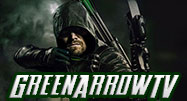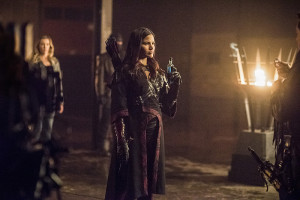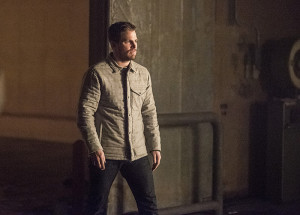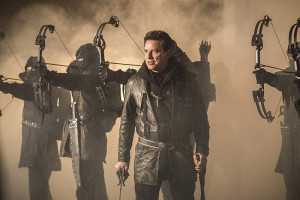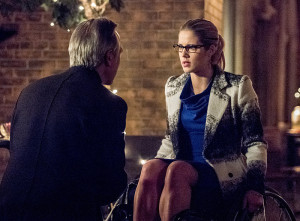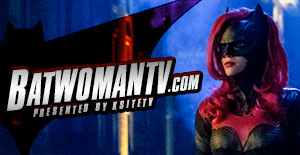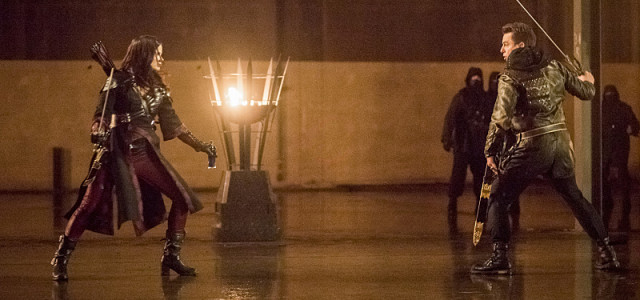
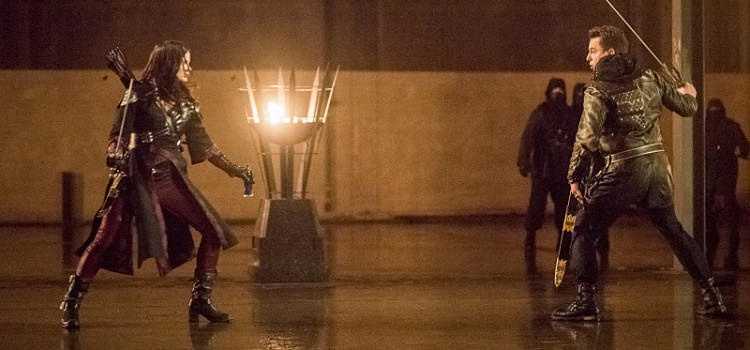
Arrow #4.13: “Sins of the Father” Review
Recaps & Reviews February 11, 2016 Matt Tucker

Summary: A tablesetting episode that’s theme makes enticing to watch.
If you have not seen this episode yet and do not wish to be spoiled, do not continue reading!
For a full episode synopsis, grab a read of our Quickshot Recap: #4.13: “Sins of the Father”
Review
Arrow has been a bit of a mixed bag this season. Not in a bad fashion, per se. It still seems to have a better sense of its identity this year and confidence and trust in its characters. Yet, one can’t help but feel that it’s been spinning its wheels a bit as of late.
A good chunk of the first run of episodes was fun and exciting, showing off a renewed creative energy while also transitioning the tone of the series. It was successful, but it also felt like there was a lot of set-up to getting DC’s Legends of Tomorrow off the ground. That out of the way, they could refocus on this battle of light and darkness filtered through the lens of the mystical. That, though, has felt a bit shaky.
What they’ve touched on, particularly in the four episodes back from hiatus, has all been pertinent to the story and to character growth, so it’s not like we’re being cheated. It just feels a lot like churn before exploding into a string of episodes that are sure to leave us breathless. In an appropriate metaphor, this is like the Starkiller base in Star Wars: The Force Awakens inhaling a sun to power its weapon. We’re getting all of these small things sucked into place to fire.
You could pinpoint this to the structural requirements of a 23-episode season, not necessarily filler but needing to make full use of the time allotted, even if your given plot for the season demands more aggressive attention. It’s a double-edged sword; we want to see character and relationship fleshed out, to see ramifications of the plot on the people we’ve come to care about and not just the events. Yet, tablesetting can be as unglamorous and less engaging as it sounds.
Last week’s connection of Baron Reiter and Shadowspire to Andy Diggle’s story, and therefore to the H.I.V.E. plot thread, might’ve made things a bit less comfortable in how the world got smaller, but it helped to bind everything together and feel like it was telling a common story. Bringing everything with the League of Assassins back to order was a logical next step. Ever since Malcolm Merlyn’s mention way back in Season 1 of meeting a man in Nanda Parbat to help deal with the crushing loss of his wife, the League has been a core element of the series. Given its obvious connections to Damien Darhk established last year, and with a series regular wearing the crown — or ring, as it were — of Ra’s al Ghul, this was a piece that need to be put in place to tell the story they want going forward.
After last season, it’s hard not to be weary of League stories. It all got very tiring, so having Nyssa break free of captivity last week to track down the Lotus elixir and set up her confrontation with Merlyn for control of the League was a fair bit daunting. Yet, darn it all if it didn’t turn out to be a mostly absorbing episode. The pace leaned heavily on the languishing side of things, to be fair, but the machinations by Oliver were fun to watch and surprisingly necessary.
Oliver Queen is a bit lost in this world now. I don’t mean directionless. As the focus has spread to a team, the uniqueness of Green Arrow, and of Oliver Queen, has been lost in the shuffle. He hasn’t felt like the main force for growth and change for the show that he’s been in the past, even with all of the times Oliver has tried lately to take the fault or blame for everything happening to those around him. It’s been subtle enough that you don’t notice it until an episode like this clearly points it out. Oliver’s eventually solution to the problem of the League is a take-charge —– that puts him right back in the driver’s seat.
Oh, and what a solution. I’m reminded of the furor that frequently surrounds any sort of discussion online regarding the choice of Superman to kill Zod by snapping his neck in Man of Steel. It’s frequently looked at as a binary choice: kill him or don’t, save people or don’t. One of the things I’ve always loved about the character of Superman is that he’s the one to always find the third option. He’s the one to think himself out of an unwinnable situation, both in practical and moralistic ways. For yet another geek reference, Superman frequently employs Jim Kirk’s thinking that got him past the Kobayashi Maru of starship command decision-making in Star Trek. Here, Oliver thinks of a third option.
It’s interesting how this episode shorthands a lot of what Oliver experienced in his dealings with the League. For all intents and purposes, Nyssa and Merlyn are challenging each other for the title of Ra’s al Ghul. For convenience’s sake, they don’t go to a hallow place like the mountaintop for the duel, which given League tradition seems a bit odd. Nyssa knowing she has followers within the League, it makes sense that she would formally challenge in this fashion now as opposed to when Malcolm was handed the title from Oliver. But Oliver’s use of League tenets and traditions to determine the outcome is a masterstroke, as well as perfectly within character to try to control every situation as much as possible. Whether or not League law is recognized as legal to the rest of the world, distinctly in regards to the legitimacy of the marriage between Oliver and Nyssa, the League will always honor it. (And it sounds as if divorce or annulment don’t exist in League law.) Right, wrong, or indifferent in regards to gender politics, Nyssa has to accept Oliver’s assertion that he fight in her place as her husband because it is law. Getting the sides to agree to the duel, and the potential for one of them to lose their life, was exactly the way for Oliver to get through it.
Cleaving Merlyn’s hand from his body was quite unexpected, but it satisfied everything Oliver needed to accomplish. He won the duel, thus taking ownership of the the Demon’s Head title once again. He was able to spare the lives of both Nyssa and Merlyn, and most important, he was able to get the Lotus for Thea to cure her of the after effects of Lazarus Pit. (Though, with the bloodlust now gone, I’m curious once again as to what kind of story they are going to offer for Thea to make her relevant beyond being Oliver’s sister and a member of the team as Speedy.)
What’s more unexpected is Nyssa’s disbandment of the League, something that is sure to have far-reaching consequences than the seemingly limited impact the moment in the episode gave it. That kind of entrenched philosophy is sure to create splinter groups, now vying for the same kind of power and influence the League enjoyed, much as Damien Darhk and H.I.V.E. also grew out of the League’s past. It also sets up an intriguing proposition for Nyssa. Just what does she do with her life now?
More pressing, though, is the course it sets Merlyn off on. Merlyn is a bit of a conundrum. In a way, he’s been set up as Oliver’s primary antagonist for the entire series. The episode has fun with their history with Malcolm needling Oliver over his intelligence and ability, as well as setting up the duel as a proper rematch for their fight on the roof during the Undertaking at the end of Season 1. (Oliver promptly turns that on its head.) Since then, Malcolm’s had this odd sort of presence on the show, tied to everything now through his biological relationship with Thea. John Barrowman was made a series regular starting in Season 3, and yet aside from Paul Blackthorne and his Quentin Lance, he gets the shortest shrift of any of the regulars in screen and story time. They attempt to use Malcolm more as a presence, such as being the mysterious catalyst behind the standoff between Team Arrow and the League in Season 3. He doesn’t have quite the immediacy that Slade Wilson, Ra’s al Ghul, or, to an extent, Damien Darhk have. The odd long game quality to the Dark Archer has in some ways made him feel like a tool for others to use rather than it feeling like a master manipulator owning everything from up on high.
The latest is now Darhk. Merlyn only held the record for shortest term as Ra’s al Ghul for, perhaps, a day before Nyssa bested him by melting the ring and giving up the power. He might have his life, and no immediate threat from the League or remnants of the League, but Malcolm has shown that, he too, must have control for his life to make sense. He must have power and influence, something he demonstrates to Oliver by revealing his knowledge of little William’s existence. To turn right around and exert that influence by relaying to Darhk that Oliver has a son is precisely a Malcolm move. No doubt, the one-handed cockroach is also weaving his own plans on how to leverage Darhk for his own gains. It remains to be seen how they’ll spin it as part of his conniving nature to always be left standing at the end of a season as a potential thorn in Oliver’s side.
What will Darhk do with this information? A son presents a squeeze point for Oliver on many fronts. The threat to life or limb holds obvious sway over Oliver on a personal level. Seeing as they’ve set Mrs. Darhk up as a political opponent to Oliver’s campaign, the revelation of a secret, born out of wedlock child also presents a clear and present danger to the mayoral aspirations. Of course, seemingly unbeknownst to Darhk, this would also affect anything to do with Green Arrow and the team of vigilantes. It’s interesting that Malcolm didn’t reveal to Damien that Oliver is the green-hooded bastard who not only disrupts H.I.V.E.’s plans but also had the temerity to rescue his family and earn a temporary reprieve. At least to this point, they haven’t revealed on the show that Darhk is aware that GA and Oliver Queen are one and the same. We’ll have to see if this accelerates that knowledge.
For those keeping track of Grave Bingo at home, it would appear more than likely that we can scratch Thea off that list. William, maybe not so much.
In other quarters, Felicity is re-introduced to her father, Noah, but also learns that he is actually the Calculator. What’s fascinating about this reveal isn’t that, after first blush, she doesn’t bristle at this idea of her kin as criminal mastermind — as well as how similar they are to one another — but that she actually has this desire to get to know her father, to bring him into her life. It echoes a theme that Oliver keeps referencing to every other person who tells him that offing Malcolm Merlyn is a perfect solution, except when it comes to Thea. Even Thea would likely tell Oliver it would have been fine to take her father’s life, but he knows and recognizes that kind of hurt that entails, despite who the father is as a person.
A strong scene between Charlotte Ross’ Donna Smoak and Emily Bett Rickards lays out perfectly the conflict Felicity is running up against. Usually perky Donna has a dead serious moment where she shares just how deep of a cut Noah gave to her life by abandoning them. But his behavior prior was already a constant re-opening wound, so for her, his leaving was the best thing for mother and daughter. People don’t change, she imparts. And as Oliver points out later, she’s mostly right. Very few of us allow for the possibility that we aren’t rigid structures and that experience can and should change us and allow us to move in different, better directions. We have a strange capacity to throw a veil over our eyes to keep us from seeing the potential to change and become the best versions of ourselves, let alone actually deciding on action. And if we do see those flaws, we have a unique capacity to be able to rationalize why we can’t make those choices or make those changes.
That’s ultimately why Felicity feels the need to test her father and why he ends up failing the test. There is a level of self-interest that is involved in leaving a child behind, and Noah just can’t see past that self-interest. Discovering that his daughter is Overwatch gives him a unique “in” to try to gather information from one of the best in the biz; why wouldn’t he take advantage of that situation, he can easily rationalize in his mind.
What works great is that it doesn’t paint Felicity in an uncaring, uncompromising light. She’s still a person who does want to see good in people, and she did want to give her father the benefit of the doubt. But she’s intelligent enough — and certainly the entire team has been fooled by enough people, including the man at the head of the group, Oliver “I’m Protecting You/It’s All My Fault” Queen — and emotionally mature enough to allow herself to keep her eyes open.
The wheels are spinning right now on Arrow, moving pieces into place to kick off that Act 3 run in a season that barrels into a stunning finale. But this spinning isn’t without any traction, and “Sins of the Father” proves a solid episode that sets the geopolitics of the various clandestine organizations that make up the world of the show into position for potentially interesting confrontation. It also makes for a wide-reaching title: Ra’s al Ghul’s actions begat Nyssa’s (and Nyssa’s eventual rejection of her father’s ways); Malcolm Merlyn’s actions put Thea into the al Ghul’s crosshairs and again threatened to cost her life, despite his protestations otherwise; Felicity and her father come to know the truth of one another, setting up a personal battle all her own; and Oliver’s actions have now potential put William at risk. As setting the table goes, this was at least enticing to watch.
